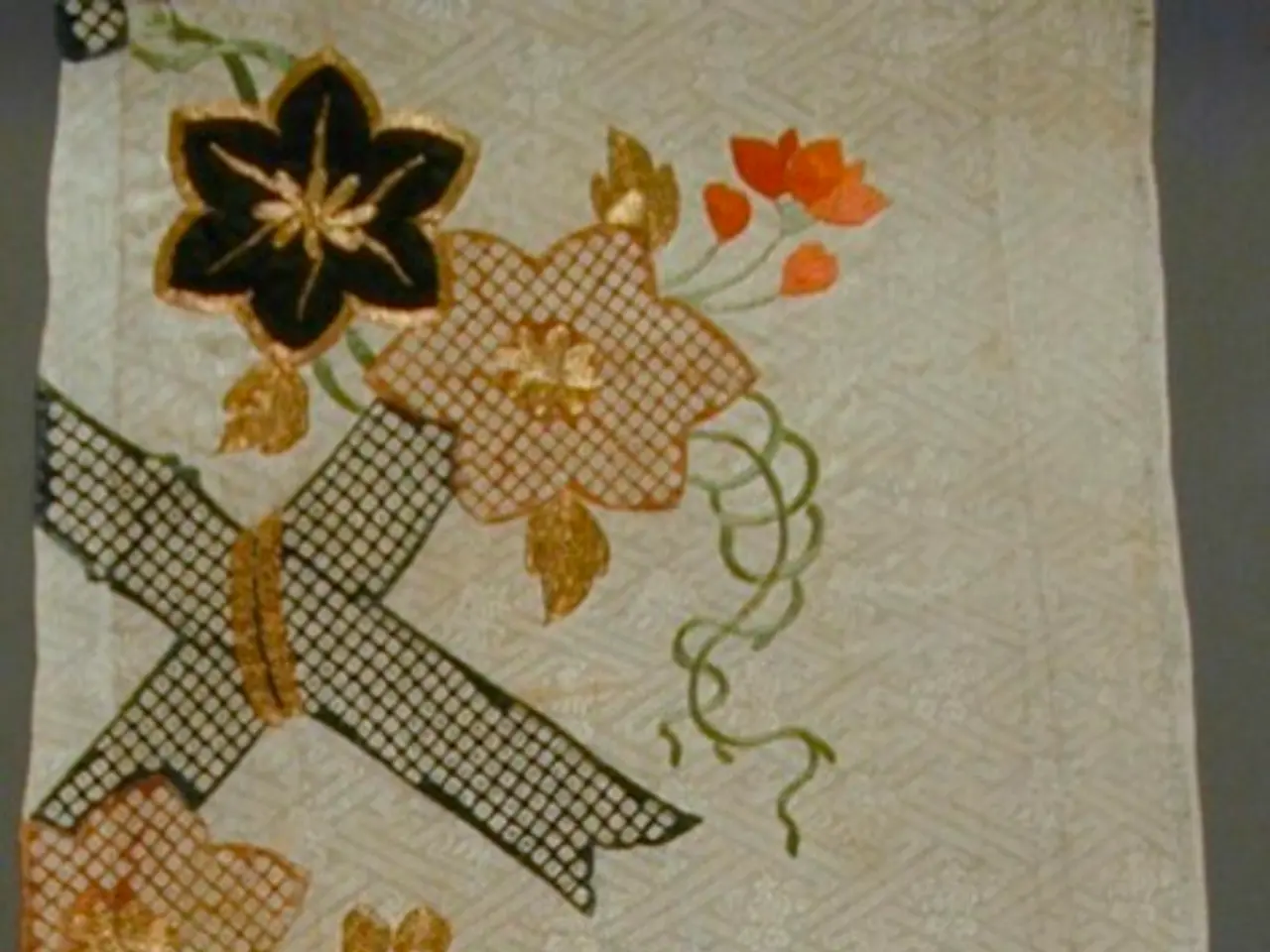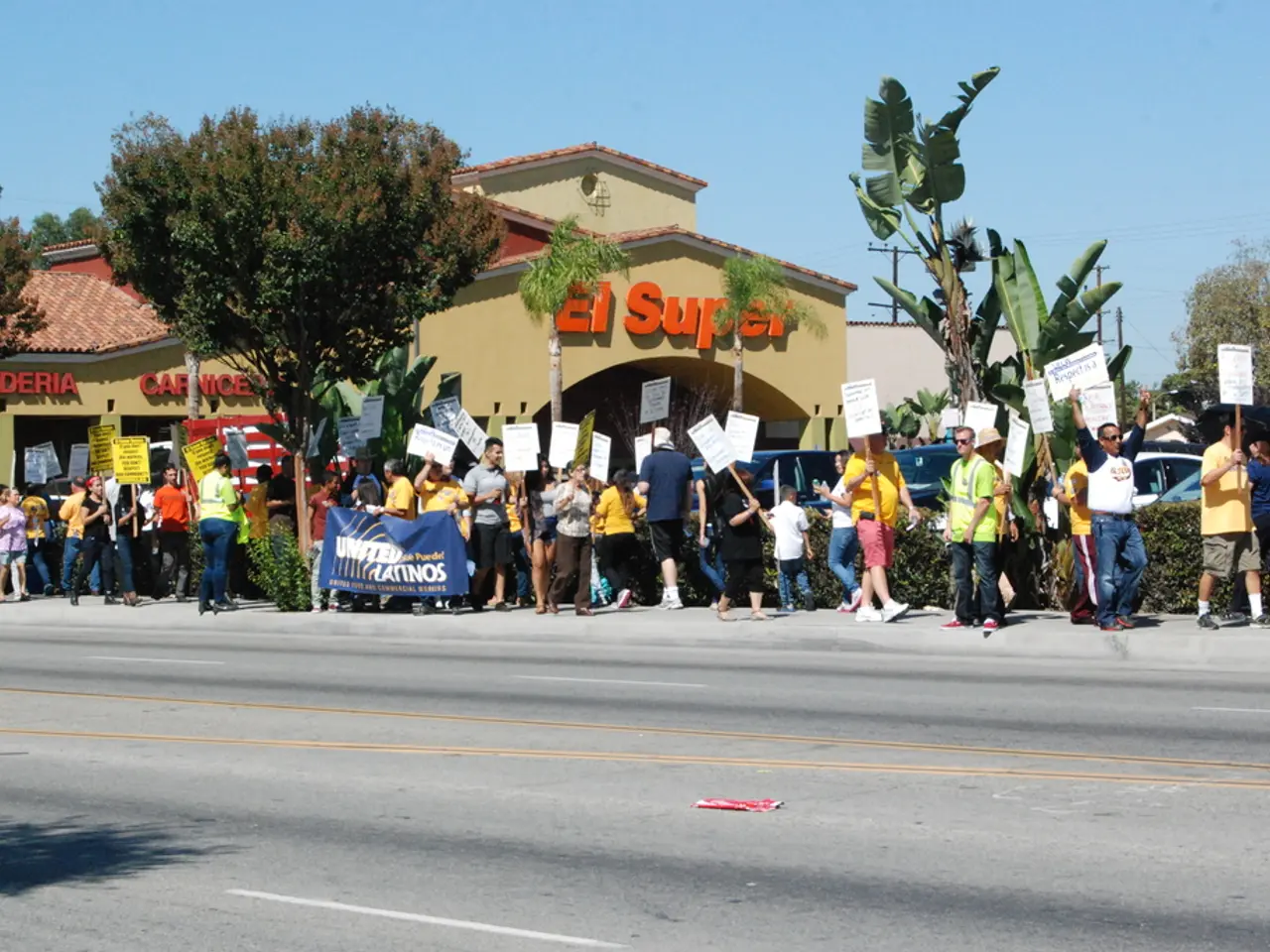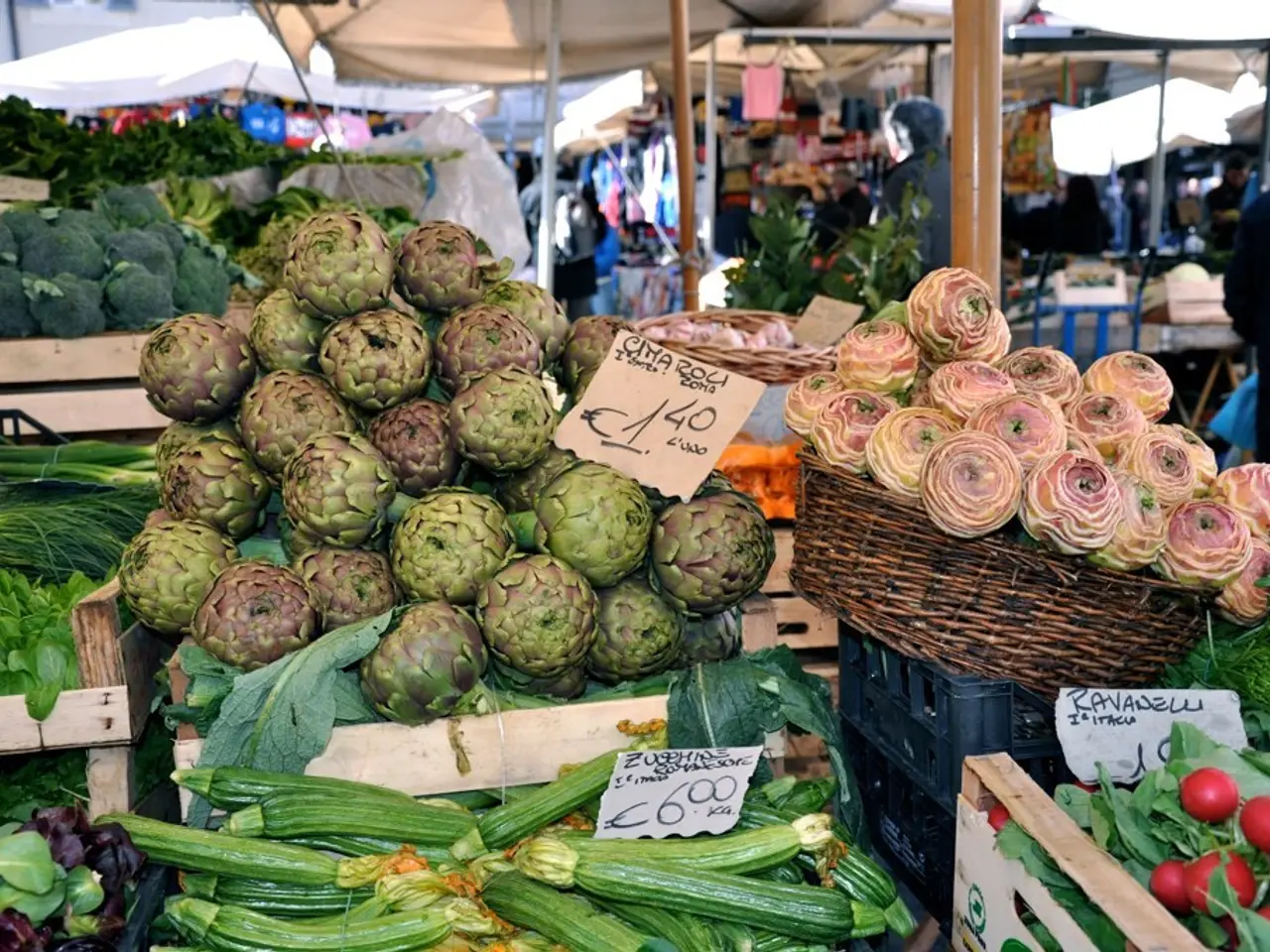Eco-Friendly Textile Procurement: Getting It Just Right
Navigating the world of sustainable fabric sourcing can be a daunting task for emerging fashion designers, especially those with limited resources, industry connections, and budget constraints. However, with the right strategies, it's possible to source eco-friendly materials that align with consumer values and support a sustainable brand.
Embracing Sustainable Fabrics
Partnering with a company like The Evans Group can save you time and money by eliminating the need for endless sourcing and deciphering supplier language. Working with such a company can also help avoid potential costs associated with the wrong fabric choices and mistakes.
Sustainable fabrics, while offering numerous benefits, can be more expensive and have longer lead times compared to conventional ones. Understanding the differences in terms like "organic", "recycled", "Deadstock", and "OEKO-TEX certified" is crucial for making informed purchasing decisions.
Strategies for Sustainable Fabric Sourcing
- Use Upcycled Deadstock Fabrics: Sourcing deadstock fabrics—leftover materials from past collections—allows for unique, limited-edition pieces while minimizing waste. However, availability can be inconsistent, and color options may be limited.
- Explore Certified Sustainable Fabrics Like TENCEL™ Refibra™: Fabrics such as TENCEL™ Refibra™, which combine wood pulp from responsibly managed forests and recycled cotton scraps, offer sustainable, biodegradable options with good quality suitable for premium garments. These fabrics typically come with certifications ensuring environmental standards, which help verify their sustainability claims.
- Leverage Local and Online Suppliers: In regions like India, emerging designers can tap into large fabric markets (e.g., Surat Textile Market, Chandni Chowk) and online platforms (IndiaMART, Alibaba India) to source sustainable fibers like organic cotton, bamboo viscose, or recycled polyester. Trade shows and artisan cooperatives (e.g., Khadi India) offer opportunities to find niche, eco-friendly fabrics at competitive prices.
- Request Samples and Certifications: Testing fabric samples for quality and eco-certifications (such as GOTS, OEKO-TEX, Fair Trade) helps ensure sustainability and performance. This practice can minimize costly errors and build buyer confidence even with limited budgets.
- Build Relationships with Small-Scale and Ethical Suppliers: Developing ongoing communication and partnerships with smaller mills, artisan groups, and sustainable fabric producers can improve access and negotiate better pricing or minimum order quantities over time.
- Participate in Sustainability Initiatives and Networks: Engaging with industry programs that promote sustainable sourcing—such as initiatives encouraging the use of recycled fabrics or rescued materials—can provide education, supplier contacts, and sometimes preferential access to sustainable materials.
- Adopt Circular Supply Approaches: Incorporating circular fashion principles, such as designing for reuse, repair, and recycling, can reduce material needs and enhance sustainability credentials, attracting conscious consumers and potential collaborators.
By combining deadstock and recycled fabric sources, choosing certified sustainable fibers, leveraging local and online markets, and developing strong supplier relationships, emerging designers can effectively source sustainable fabrics despite limited resources and connections.
The Importance of Credibility and Expert Guidance
Damaged credibility due to unsustainable practices can be a significant blow with today's sophisticated consumers. The risk of greenwashing, or sustainability claims that don't hold up under scrutiny, can damage a brand's reputation. Partnering with a company like The Evans Group can give you confidence in your sustainable product choices that align with consumer values.
Our company offers guidance to prevent mistakes in sustainable fabric sourcing, ensuring that you make informed decisions and build a strong, sustainable brand. Sustainable fabric suppliers often lack transparency regarding how the fabric was sourced, processed, or certified. Partnering with our company leads to streamlined development and minimizes time loss and errors.
Our company helps designers select sustainable fabrics that elevate design quality without compromises. With deep vendor relationships, the ability to match materials to design goals and aesthetics, and connections to certified options with low minimum order quantities, The Evans Group is a valuable partner for emerging fashion designers seeking to establish sustainable brands.
To start sustainable fabric sourcing, contact The Evans Group for guidance on making modern sustainability a feature of your brand. With our supportive, expert team, you'll navigate the challenges of sustainable fashion and create a brand that resonates with today's conscious consumers.
- Investing in sustainable fabrics can be an asset for emergent designers, as it not only supports eco-friendly branding but also reflects consumer values.
- Navigating the labyrinth of sustainable fabric sourcing can be easier with the assistance of companies like The Evans Group, potentially saving both time and money.
- Understanding terms such as "organic", "recycled", "Deadstock", and "OEKO-TEX certified" becomes crucial when making purchasing decisions for sustainable materials.
- Considering circular supply approaches, like designing for reuse, repair, and recycling, can enhance sustainability credentials and attract thoughtful consumers.
- Building relationships with small-scale, ethical suppliers and participating in sustainability initiatives can further enhance access to sustainable materials and foster a growing, sustainable lifestyle brand in the fashion-and-beauty, home-and-garden sectors.




